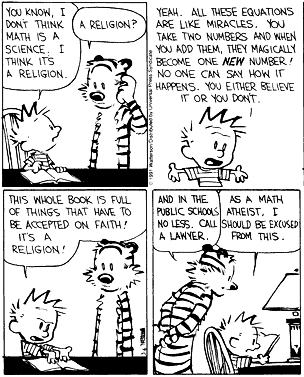I was listening to the audio book version of Surely Your Joking, Mr. Feynman! the other day and Feynman told of trying to teach his artist friend about science in return for the artist to teach him about art. It turned out that Feynman was a much better artist than the artist was a scientist. In fact the artist couldn’t get anywhere with science. And Feynman observed that it wasn’t just artists. It was pervasive in our society and perhaps in the human species. I’ve run into it myself some even with people that appear at first glance to be above average in intelligence. The concept that Feynman expressed was that people think engineers and scientists can do anything. You just have to tell them what you want and they could build it if they wanted to. People think of us as magicians.
One of the examples Feynman mentioned was that he was asked to be an adviser to the military and after some reluctance agreed to attend a meeting or two to see if he could contribute. One of the problems the military wanted help solving was the refueling of tanks. As they advanced on the battlefield they would run out of fuel and needed to be refueled. Why didn’t the scientists just create an engine that used sand for fuel? Then the tank could just have a little scoop on the bottom and refuel itself as it moved along.
We are not magicians. There are physical laws that we not only don’t know how to break but can’t be broken. We may find a loophole someday but that is a very risky bet. Politicians make laws that everyone knows how to break but I’m not sure people in general understand the difference.
To make things worse our politicians write laws as if we actually are magicians. The universal biometric identification card, fingerprints, airplane security searches, and “ballistic fingerprints” are just a few of the examples that are applicable to my domain of blogging. And what happens when science doesn’t come through like the advocates want us to? They bury their head in the sand and insist it’s working even when it’s not and cannot possibly work. People will want to believe something so bad that they will believe it despite evidence to the contrary.
In the cases above there is a fundamental problem that many people don’t realize exists. It’s a MUCH different problem that many other hard problems scientists and engineers have been able to solve. You used to hear things like, “If we can put a man on the moon why can’t we [fill in the blank]?” At one level I understand the feeling. Putting a man on the moon is so outside of our everyday experience that it would seem to be impossible. So why not solve something that would seem to be simple like identifying people? The fundamental difference is in one case you are “fighting” a nearly static “enemy”, “Mother Nature”, and in the other cases you are “fighting” an active thinking opponent.
I’m reminded of a quote that relates to this topic:
Campaigns to bearproof all garbage containers in wild areas have been difficult because, as one biologist put it, “There is a considerable overlap between the intelligence levels of the smartest bears and the dumbest tourists.”
Richard Wabrek
The opponent you are defending against in the case of the identification, airplane security and garbage container problems is constantly getting smarter. The earth, it’s atmosphere, the moon, gravity, and the dumbest tourists are not getting smarter.
Because of this fundamental difference in the nature of the problems any solution you find against an active opponent is likely to be short lived. In the case of a bear or a virus it may be possible to find a permanent solution. In the case of human opponents I think that in all cases it will be an unwinnable arms race. Solutions will come and with time and some smarts the opponents will defeat them with perhaps as little as one billionth as much money and effort as the solution builders put into it. The only question will be is, “Did we spend our money wisely on that solution?” Did we buy enough time before the solution was defeated to make the expenditure worthwhile? Or could we have spent that money on something else that would have been a better return on the dollar?
This concept can be extended even further. Think of the war on certain drugs and firearm bans. There is an active human opponent the solution provider is fighting. Those are battles that cannot be won.




